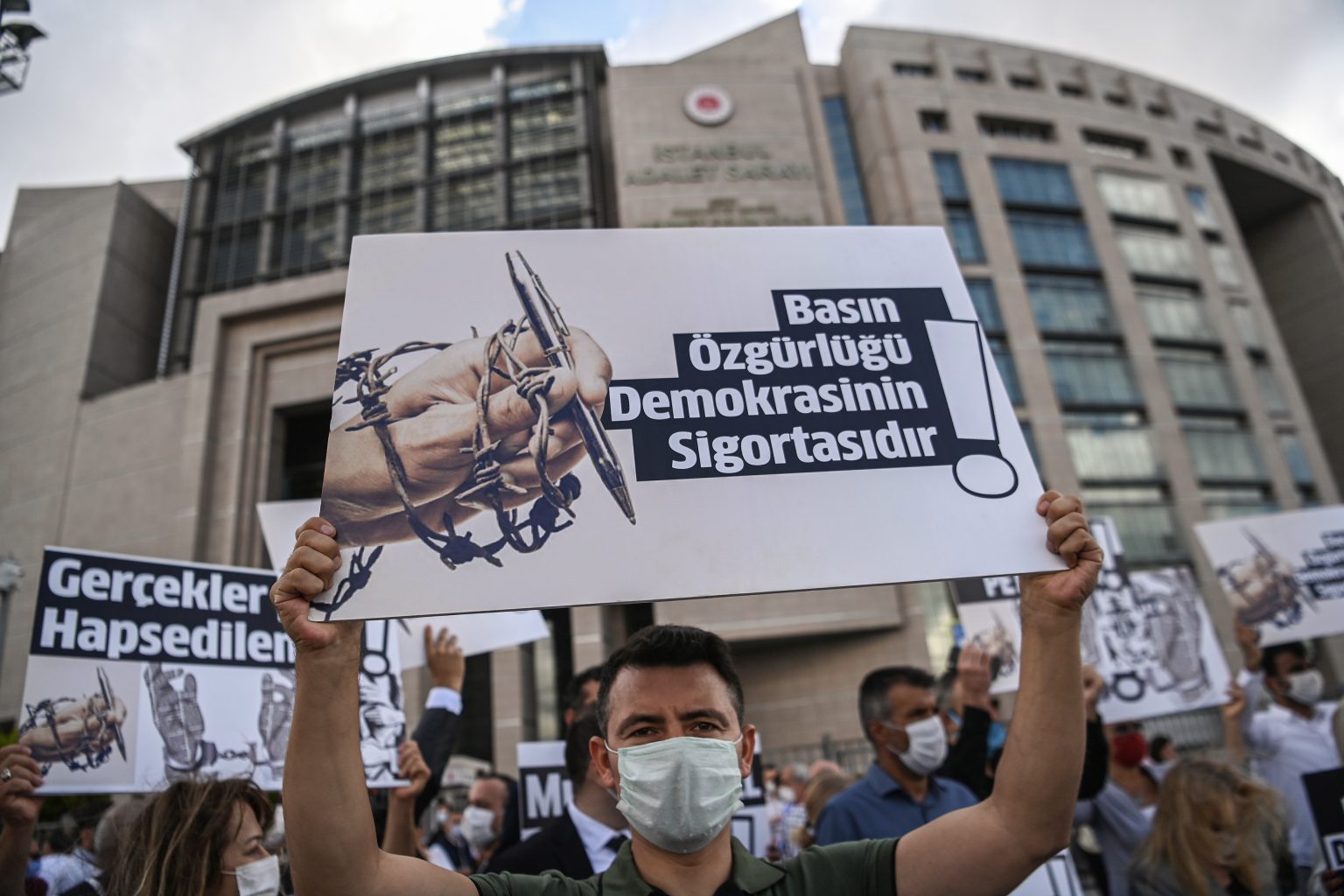A new report from the International Press Institute (IPI) has delivered a damning verdict on Turkey’s justice system, confirming what journalists have known for years: the country’s courtrooms are no longer places of law, but assembly lines for political repression, systematically designed to silence and punish critical voices.
The joint report with Turkey’s Media and Law Studies Association (MLSA), which monitored 38 separate cases involving 159 journalists, reveals a chilling landscape where the very act of journalism is treated as terrorism. An overwhelming 85 percent of the hearings involved dubious terrorism-related offenses. The “evidence” presented in these show trials consists of nothing more than the basic tools of the trade: published articles, photographs, confidential sources, and even social media posts.
This perversion of justice is made possible by a legal framework that has been twisted into a weapon. Vaguely worded anti-terrorism legislation allows the state to conflate journalism with propaganda. The report confirms that being employed by media outlets deemed critical of the government—particularly those associated with opposition movements or pro-Kurdish voices—is now presented by prosecutors as de facto proof of membership in a terrorist organization.
At the heart of this collapse is the complete erosion of judicial independence, a cornerstone of any functioning republic. The IPI report highlights the alarming practice of arbitrarily replacing judges mid-trial, a tactic used to ensure politically favorable outcomes. In a stark example from the Gezi Park trials, a presiding judge was summarily removed by the Council of Judges and Prosecutors (HSK) immediately after expressing an opinion in favor of the defendants. This is no coincidence. Since 2017, the HSK, the very body responsible for safeguarding judicial impartiality, has been appointed directly by President Erdoğan and his parliamentary majority, effectively making the judiciary an extension of the executive will.
As IPI Turkey Program Manager Oliver Money-Kyre stated, this is a “deliberate attempt to intimidate and silence critical voices.” The human cost is immense. The report found journalists held for over a year in pre-trial detention—a form of punishment without conviction—based on the most serious charges, all justified by their legitimate journalistic work.
This is not merely the opinion of one organization. The IPI’s findings echo reports from the Council of Europe, which has named Turkey the world’s largest jailer of journalists, and Reporters Without Borders, which ranked the country a dismal 157th out of 180 in its press freedom index. The evidence is overwhelming and the conclusion is inescapable: Turkey is not just jailing journalists; it is systematically dismantling the legal and democratic structures designed to protect them, turning justice into Erdoğan‘s political weapon.


